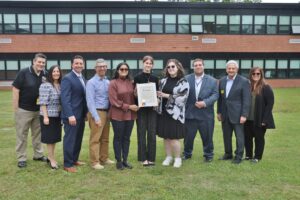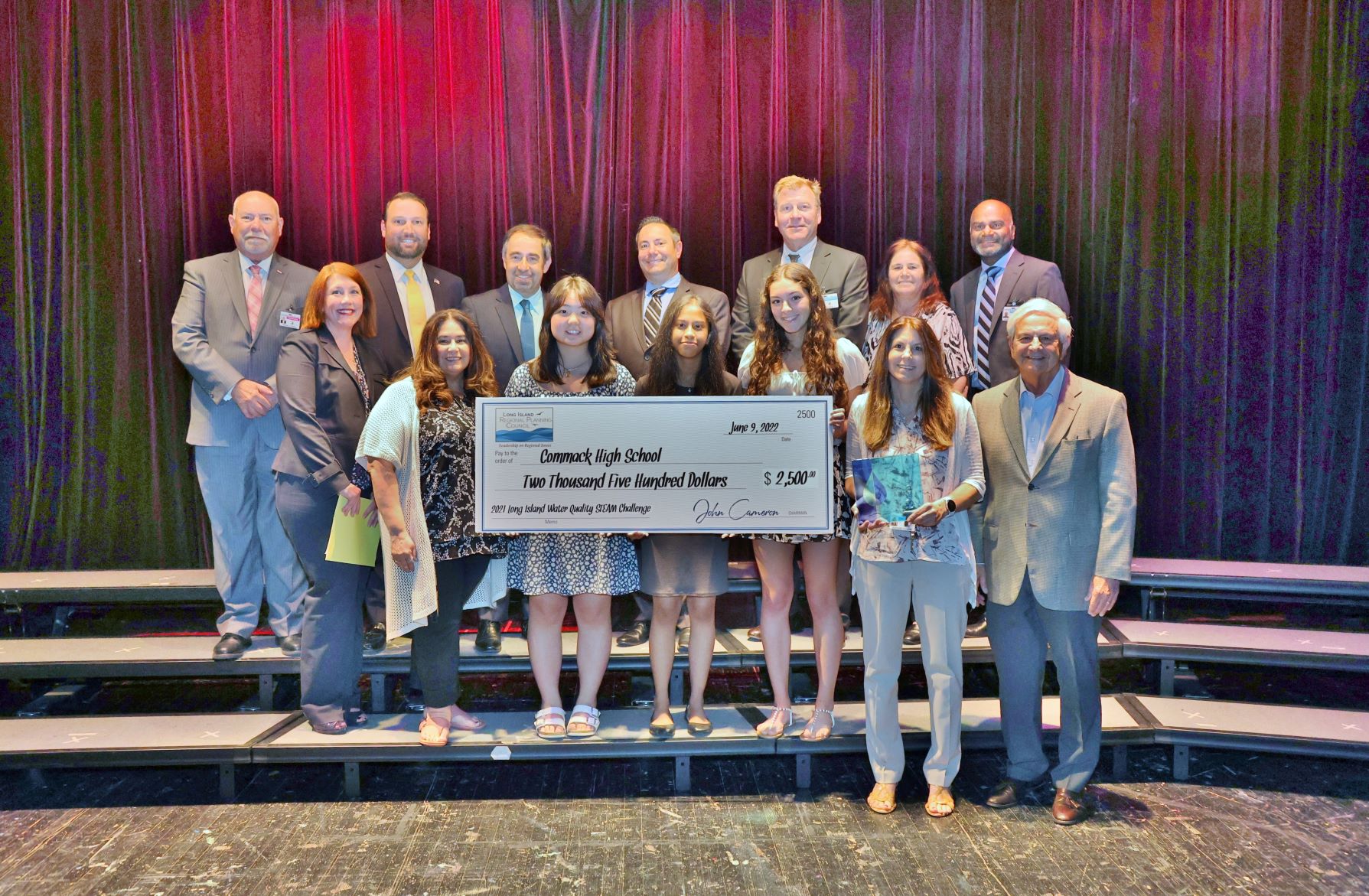2025 LIWQC Winners:
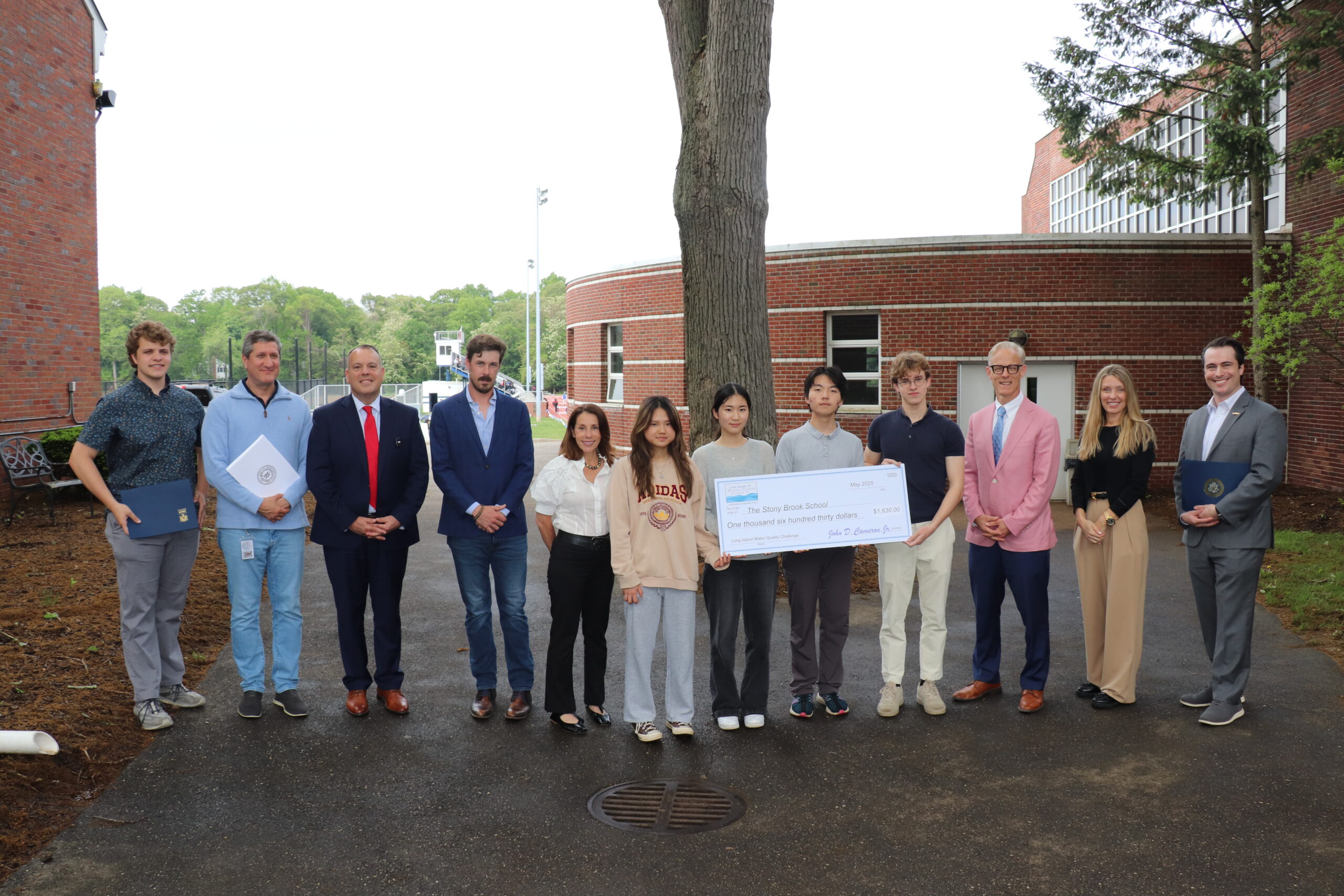
The Stony Brook School: The students designed a 3D-printed biofiltration system using gravel, silica, and zeolite. The system effectively lowered nitrate concentrations, showing promise as a sustainable solution for groundwater management.
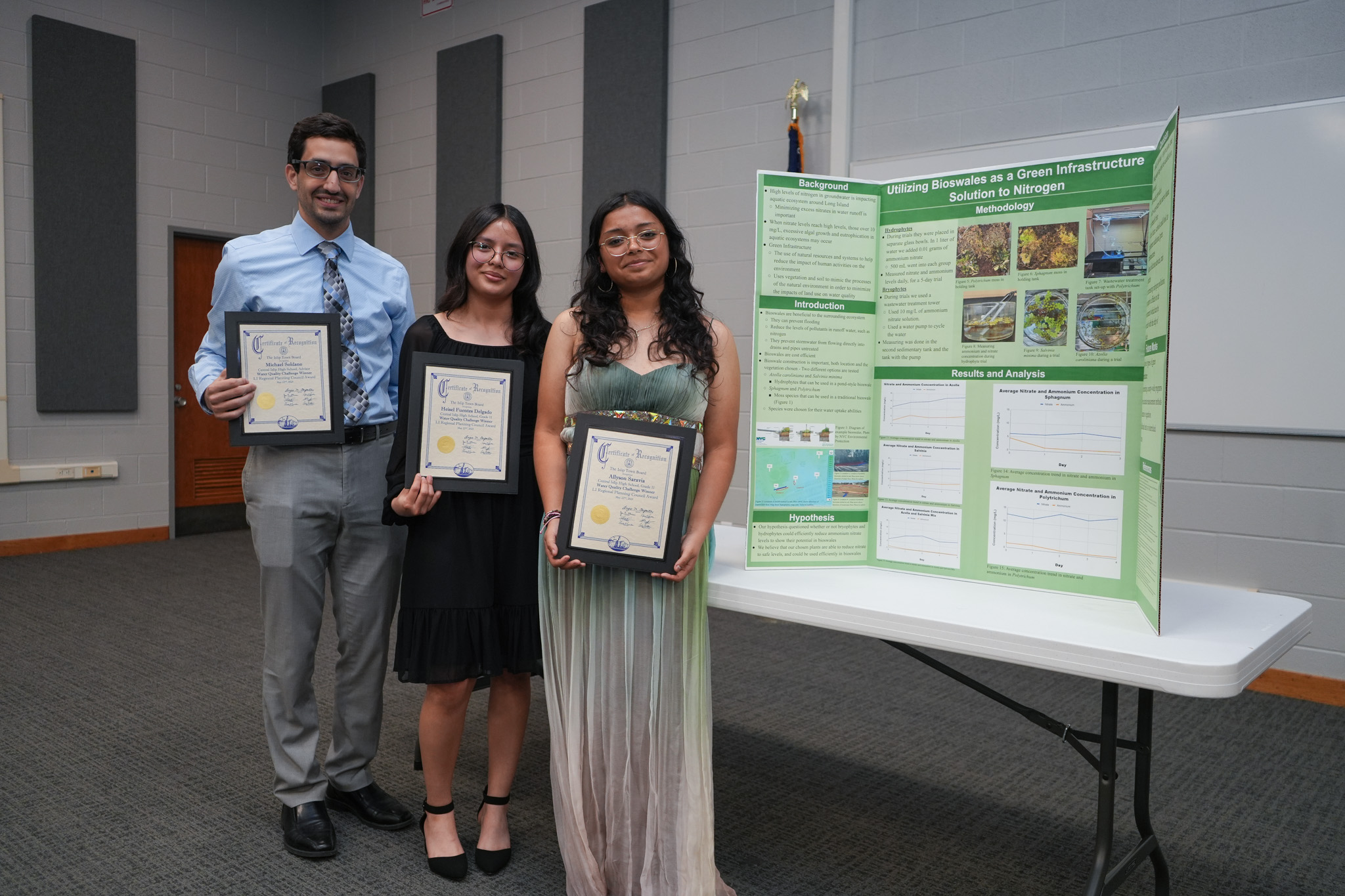
Central Islip High School: The team is tackling nitrogen pollution on school grounds by designing bioswales to filter pollution carried by rainwater and to prevent flooding.
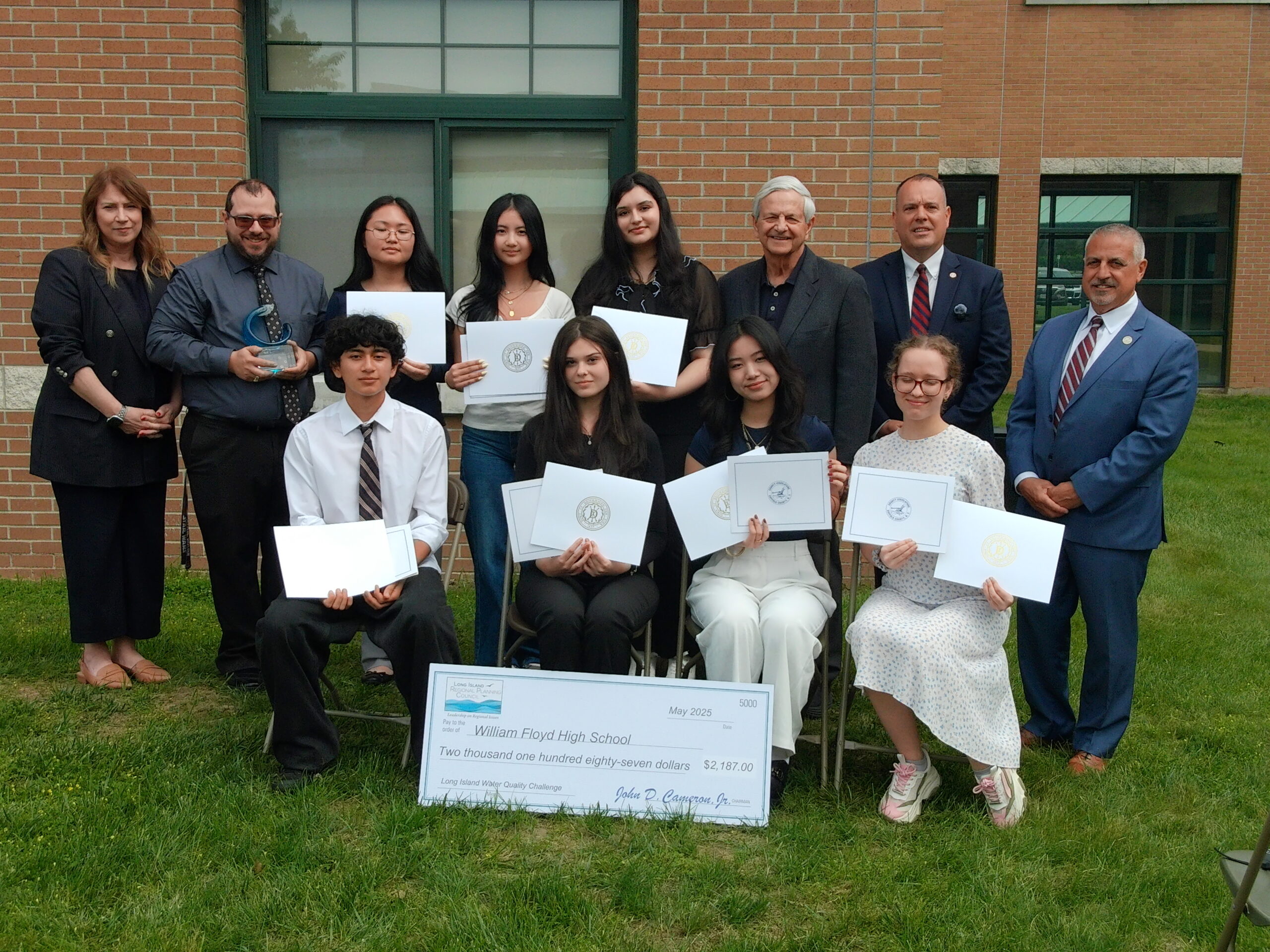
William Floyd High School: The team was awarded a grant to implement their winning design on school grounds which will reduce nitrogen pollution on school grounds and promote a new generation of climate leaders. The proposal focused on rain gardens to be strategically planted in low-lying areas of the school grounds where stormwater accumulates.
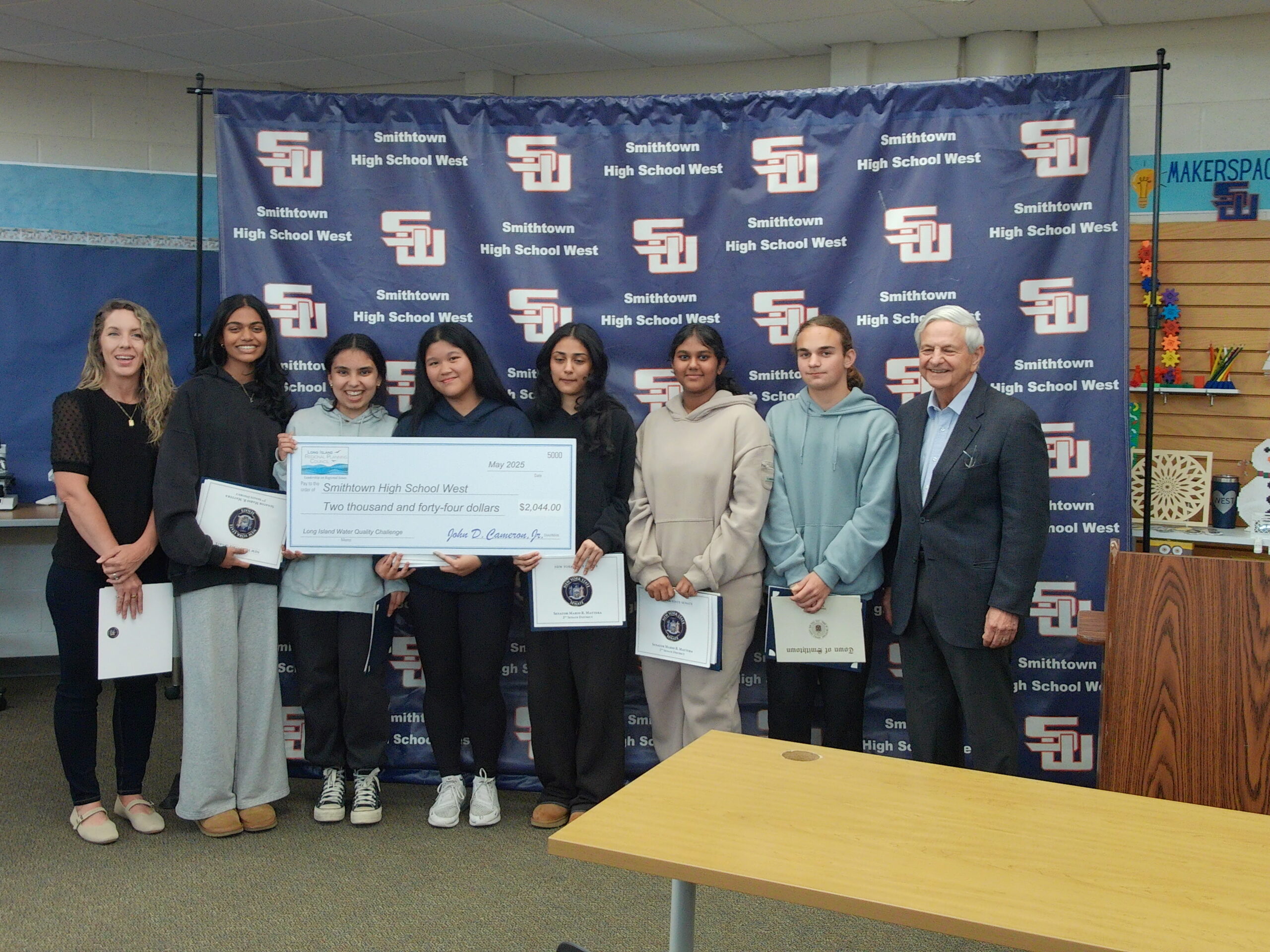
Smithtown High School West: The winning team proposed building rain gardens with native plants and soil composed of sand, gravel, mulch, and compost to ensure drainage. The rain gardens provide a method of filtration for water comin off the roof of the school from downspouts.
2024 LIWQC Winners:
West Hempstead High School: The proposal focused on planting a rain garden in area of the school that floods, creating a drainage system using PVC pipes leading to a tiered filtration system.
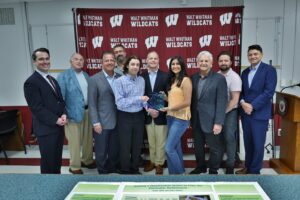
Walt Whitman High School: This project included adding a mycromediating filter in a downspout diverter to filter contaminants directly from a shed roof that is located off the main building into a water storage container.
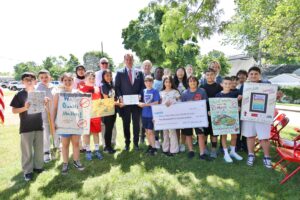
Island Trees Memorial Middle School The SEEDS Club (Students Embrace Environmental Decisions and Solutions) focused on planting a rain garden in between a downspout from a rooftop and a sewer. Project Presentation created by Island Trees: Pollinator Paradise
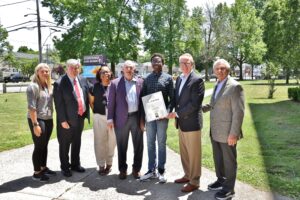
Sewanhanka Central High School: The student planned a bioretention areas using fungi and plants, with planter boxes around a constructed wetland/pond.
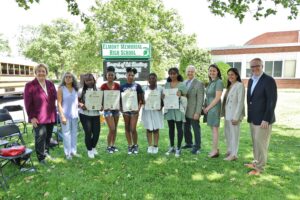
Elmont High School: Vertical planter boxes were designed to be placed along the softball field where the highest level of nitrogen was measured. Drainage pipes will lead from a retaining wall directly into the planter boxes to filter the water.
2023 LIWQC Winners:
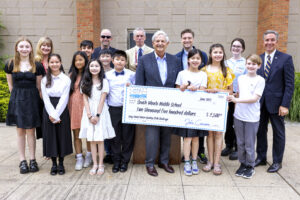
South Woods Middle School: The 6th grade team designed a native garden with the use of a Tinkercad and created an outreach plan to educate the broader community about nitrogen pollution.
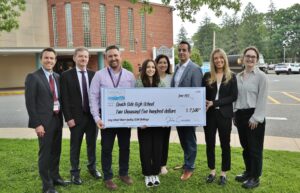
South Side High School: The school received a $2500 grant for the installation of a rain garden and permeable pavement to reduce stormwater runoff and reduce nitrogen pollutants.
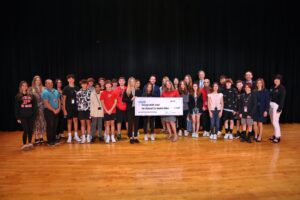
Plainedge Middle School: Students built lysimeters – an instrument buried in the ground used to collect and analyze the water percolated through the soil – to monitor the amount of nitrogen infiltrating the groundwater on the school’s playing fields.
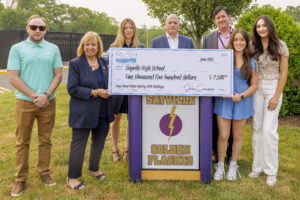
Sayville High School: To limit the amount of nitrogen pollution entering Green’s Creek from the school’s parking lot discharge, students designed a woodchip biochar filter to be installed at the discharge location.
2022 LIWQC Winners:
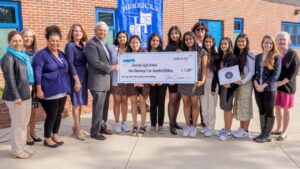
Herricks High School: Students developed their ‘Say NO to Nitro!’ project which will plant native wildflowers with natural denitrifying qualities in three locations to reduce nitrogen entering the ground and surface waters from school grounds. Assemblywoman Gina L. Sillitti, Town of North Hempstead Supervisor Jennifer DeSena, and District Representative Betsy Golan of Senator Anna M. Kaplan‘s office joined LIRPC’s Executive Director, Richard Guardino, to present the check to Herricks High School students and faculty.
2021 LIWQC Winners:
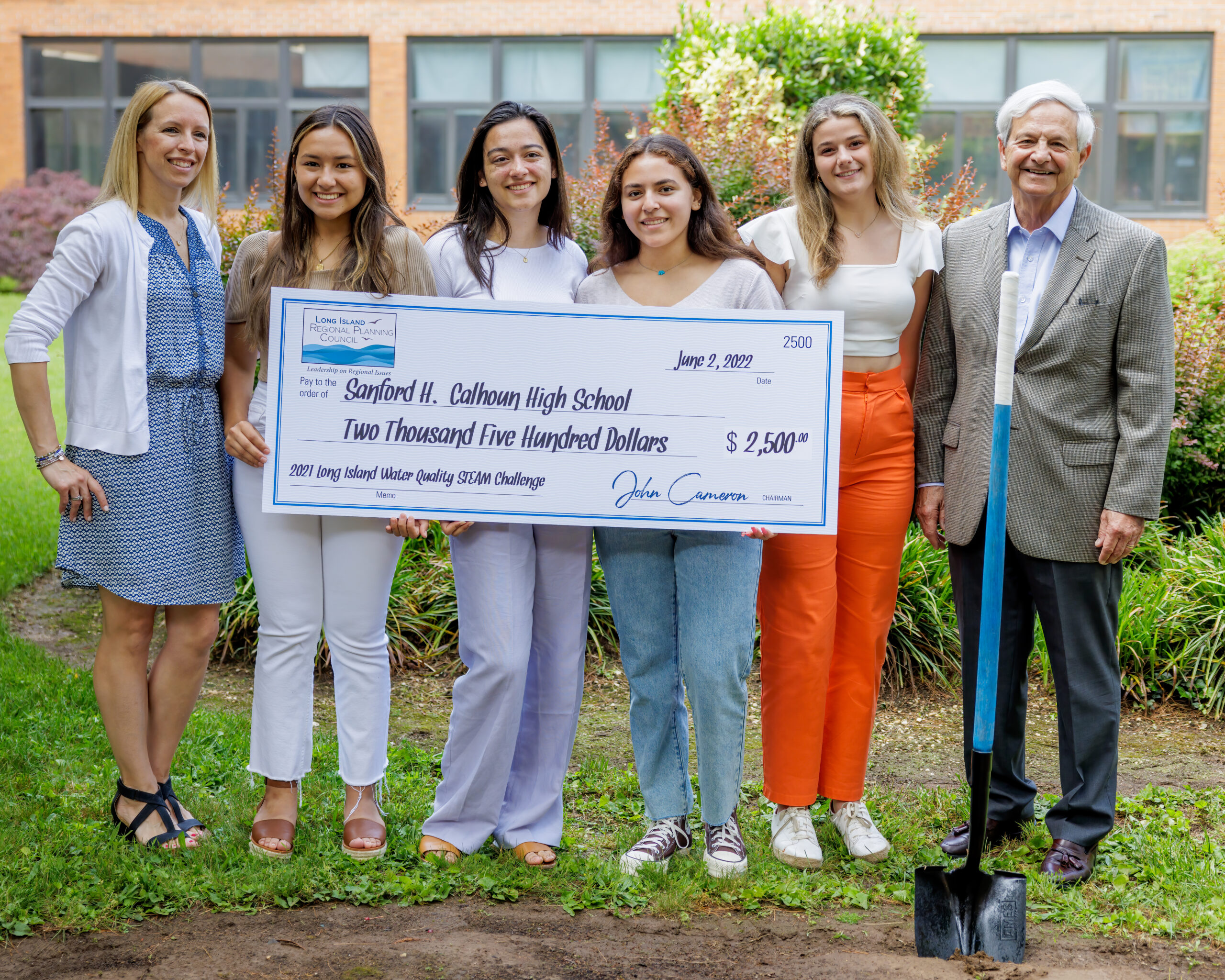
Calhoun High School: Students designed a rain garden which features native plants to help filter out pollutants or excess nutrients from stormwater runoff before it enters the surface waterways or recharges into the ground water supply. The rain garden will transform a grass area that presently requires regular maintenance to a more natural landscaped area with native plantings that collect, absorb, and filter stormwater runoff. This will provide a habitat beneficial for insects and birds, as well as filter pollutants that would otherwise be discharged off site. The garden will also serve as an ongoing classroom for students in future years.
Commack High School: Students designed a native plant rain garden located in a courtyard that will be a subset of a larger plan to turn the courtyard into an outdoor classroom. STEM classes like IB Biology and IB Environmental will incorporate the garden into their curriculum. The garden will provide an area for pollinators while removing sediments from rainwater runoff. Signage will educate visitors about the need for native rain gardens. A teacher workshop will be held for STEM teachers on how to incorporate the garden and utilize volunteers and clubs to maintain the garden.
2020 LIWQC Winners:
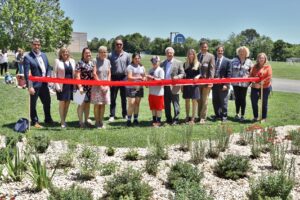
Cutchogue East Elementary School: Students collaborated to research stormwater treatments to minimize pollution into the Peconic Bays. They designed a biorentention area on the campus which uses soil, plants and microbes to treat stormwater before it is infiltrated or discharged.
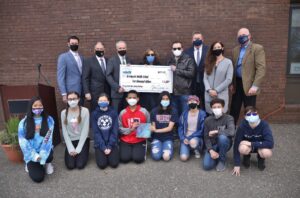
Accompsett Middle School: a $5000 grant for the implementation of a native plant and pollinator garden for the front entrance of the school. The garden will serve as an ongoing “classroom” for both middle school and elementary school students on how native plants and natural pollinators, such as birds and bats, can reduce the use of chemicals or overwatering.
